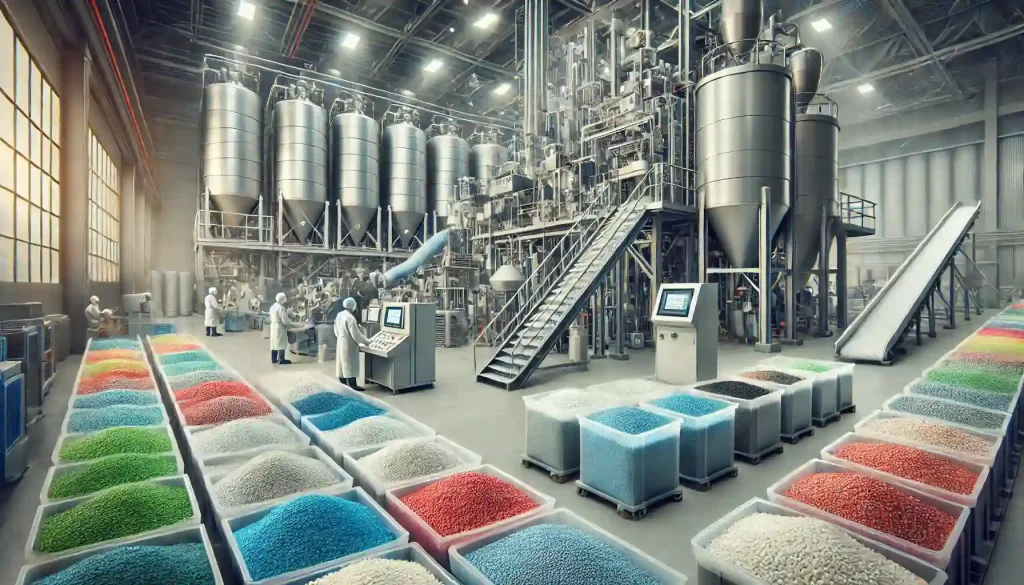The Versatility and Global Demand for Plastic Granules
Plastic granules are a key raw material used in the production of a wide range of plastic products. These small, pellet-like pieces of plastic are processed through methods like injection molding, extrusion, and blow molding to create items used in virtually every industry, from packaging and construction to automotive, electronics, and household goods. As the demand for plastic products continues to grow, so does the global market for plastic granules, making their exportation a thriving business opportunity.
What Are Plastic Granules?
Plastic granules are created through the polymerization of raw materials such as petroleum, natural gas, or renewable resources. The result is a consistent, easily manageable form of plastic that can be melted down and shaped into new products. Depending on the type of polymer, different kinds of plastic granules are available, each with its specific properties and applications:
Polyethylene (PE): Widely used in packaging materials such as plastic bags, films, and containers.
Polypropylene (PP): Commonly used in automotive parts, textiles, and food containers.
Polyvinyl chloride (PVC): Used for pipes, cable insulation, and construction materials.
Polystyrene (PS): Utilized for disposable cups, plates, and packaging materials.
Polyethylene Terephthalate (PET): The main material in plastic bottles and food packaging.
Industrial Applications of Plastic Granules
Plastic granules are incredibly versatile, making them suitable for numerous applications:
Packaging: From flexible plastic wraps to rigid containers, plastic granules are key in creating packaging that is durable, lightweight, and cost-effective.
Construction: Plastic granules are used to produce pipes, insulation materials, window frames, and flooring products. Their durability, weather resistance, and flexibility make them ideal for construction projects.
Automotive: The automotive industry relies heavily on plastic components made from granules. Lightweight plastic parts help reduce vehicle weight, improving fuel efficiency and performance.
Consumer Goods: Everyday household products such as furniture, kitchenware, and electronic casings are produced from plastic granules.
Textiles: Granules are used in the production of synthetic fibers like polyester and nylon, which are then turned into fabrics for clothing and upholstery.
Recycling: Recycled plastic granules are increasingly used to create new products, contributing to the growing circular economy and helping reduce plastic waste.
Exportation of Plastic Granules
With the widespread use of plastic products, the export market for plastic granules is booming. Exporting plastic granules presents an excellent opportunity for businesses to tap into global demand, particularly as many countries and industries continue to grow their manufacturing sectors.
Key advantages of exporting plastic granules include:
High Demand: The global plastics industry is continually expanding, driven by the need for affordable, versatile materials in industries ranging from packaging to construction.
Variety of Markets: Plastic granules are needed across different sectors worldwide, offering diverse market opportunities for exporters.
Recyclable and Sustainable Options: The increased focus on sustainability has led to a growing demand for recycled plastic granules, providing opportunities to meet the needs of eco-conscious markets.
Export Strategies
For successful plastic granule exportation, businesses should focus on the following strategies:
Market Research: Identifying high-demand markets, particularly in developing countries with growing industrial sectors, can help businesses target the right buyers.
Compliance with Regulations: Different countries have varying regulations regarding plastic importation, particularly for recycled materials. Understanding these regulations is crucial for smooth exports.
Quality Control: Maintaining consistent quality is key to building a reputation in the global market. Exporters should ensure their plastic granules meet international standards and certifications.
Efficient Logistics: As a raw material, plastic granules are typically shipped in bulk. Establishing a reliable supply chain and logistics network ensures timely and cost-effective delivery to international markets.
Plastic granules are a cornerstone of the modern manufacturing process, and with their wide range of applications, exporting them presents a lucrative opportunity for businesses looking to expand their global reach.




